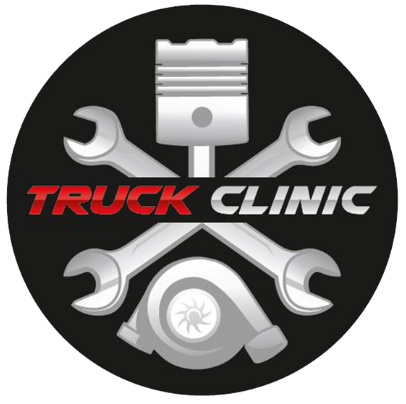Truck Repair and Diagnostics: How Truck Service Really Help
If you drive a truck for a living—or manage a fleet—you’ve probably heard the terms truck service, truck repair, and diagnostics used interchangeably. But here’s the thing: they’re not the same, and knowing the difference can save you time, money, and a serious headache down the road.
Imagine this: your check engine light comes on, or maybe your truck just isn’t running like it used to. Do you need a diagnostic? A routine service? A full-blown repair? Understanding what each of these means—and when to use them—can help you avoid unnecessary work and keep your truck running safely and efficiently.
In this post, we’re breaking it all down in plain English. You’ll learn exactly what truck service covers, how truck repair fits into the picture, and why diagnostics are a crucial first step when something goes wrong. We’ll even explain how truck inspections differ from diagnostics, and why both are important.
Whether you’re a seasoned driver or just starting out, this guide will give you a clear roadmap to understanding your truck’s needs—and how a trusted truck mechanic in Chicago can help you stay ahead of the curve. Let’s get into it.
What Is Truck Service? Keeping Your Vehicle in Top Shape
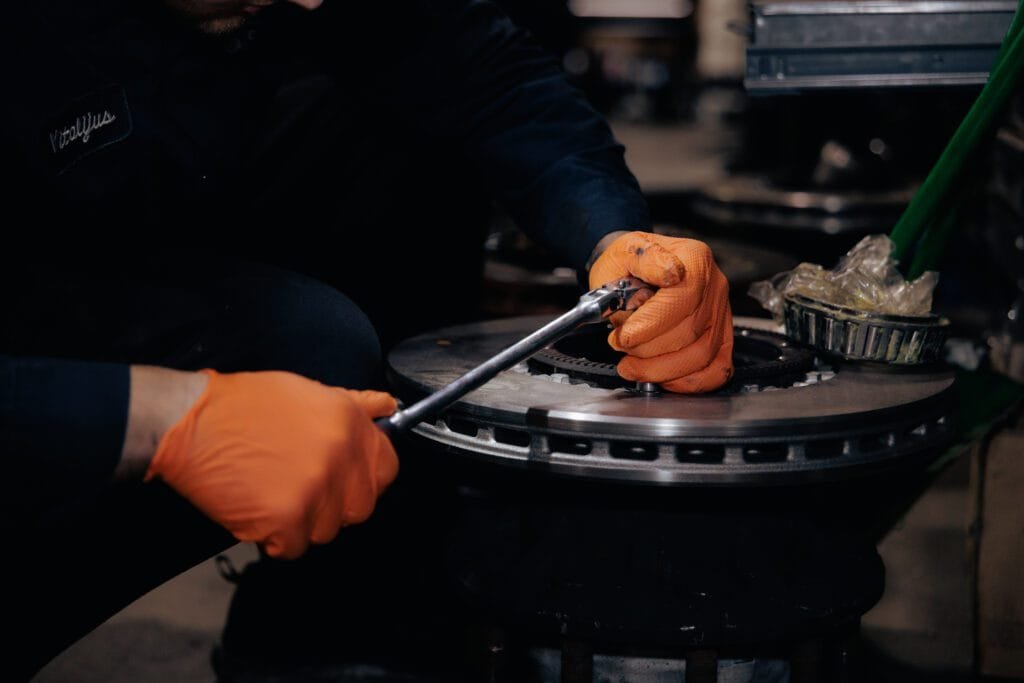
Let’s start with the basics: truck service is all about prevention. Think of it like a regular checkup for your truck—keeping everything running smoothly before small issues turn into big, expensive problems. Just like you wouldn’t skip an oil change in your car, your truck needs routine care to stay road-ready and compliant with safety standards.
So, what does truck service actually include? It usually covers things like oil and filter changes, fluid top-offs, tire rotations, brake checks, and general maintenance that helps prevent wear and tear. These services are typically scheduled at regular mileage intervals and are tailored to your truck’s make, model, and how hard it’s working on the road.
The main goal of regular service is to catch problems early—before they affect your performance or safety. Skipping routine service might save you time today, but it can cost you big in repairs later on.
If you’re unsure when your truck is due, a reliable truck mechanic in Chicago can help you create a service schedule that fits your driving patterns and keeps your truck in top condition. Staying on top of routine truck service doesn’t just keep you moving—it protects your investment, extends your vehicle’s life, and helps avoid unexpected downtime when you can least afford it.
What Is Truck Repair? Fixing What’s Broken
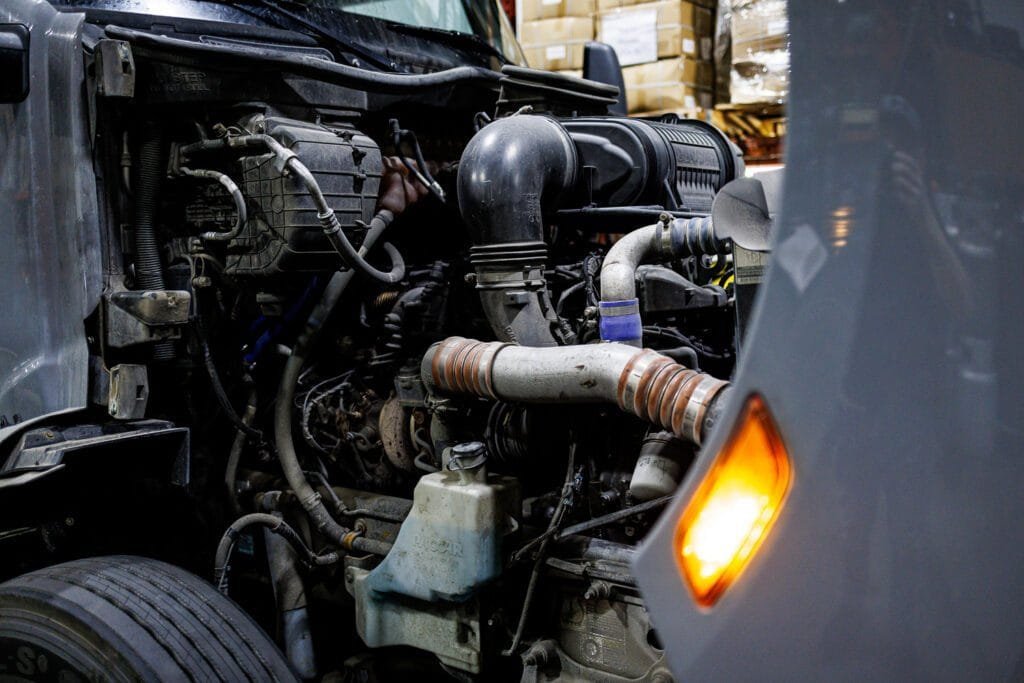
While truck service is all about prevention, truck repair steps in when something’s already gone wrong. It’s the difference between changing your oil on schedule and replacing your engine because you didn’t. Repairs are reactive—they happen after a part fails, a system malfunctions, or something just doesn’t feel right behind the wheel.
Truck repair can range from small fixes like replacing a worn belt or leaky hose to major jobs like engine overhauls, brake system failures, or transmission issues. Unlike routine service, which you can often plan for, repairs tend to show up uninvited—and usually at the worst possible time.
Some common signs you might need truck repair include strange noises, loss of power, trouble shifting gears, leaks, or warning lights that won’t go away. When those symptoms pop up, don’t ignore them. Waiting too long can turn a minor fix into a major problem—and a much higher repair bill.
That’s where a skilled truck mechanic in Chicago really proves their value. They’ll not only diagnose the issue quickly but also explain the repair clearly and help you get back on the road safely. The sooner you address issues, the less risk you run of getting sidelined during a critical delivery or long-haul run.
Bottom line? Repairs are unavoidable from time to time—but dealing with them promptly and with the help of a trusted professional makes all the difference.
Understanding Truck Diagnostics: Identifying the Problem
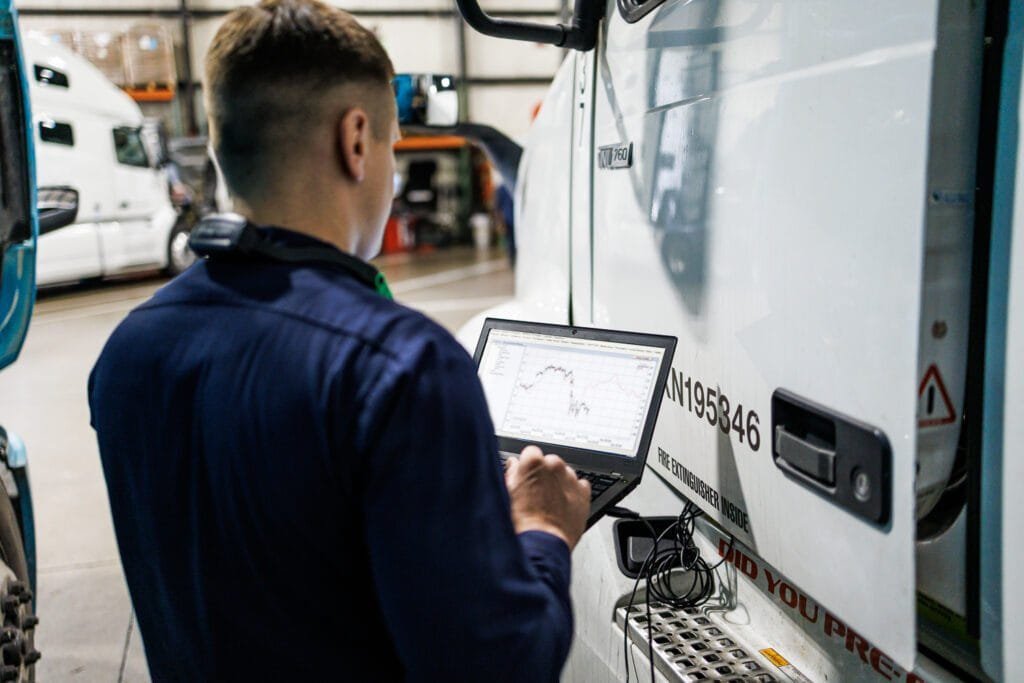
Before any truck repair happens, you need to know what’s wrong—and that’s where diagnostics come in. A truck diagnostic is like a health screening for your vehicle. It doesn’t fix the problem, but it tells you exactly where to look and what to fix. And in 2025, it’s smarter and more precise than ever.
Modern trucks are full of sensors and onboard computers. When something isn’t right—whether it’s low oil pressure, a misfiring cylinder, or a faulty sensor—the system sends out a signal. That’s when your check engine light might pop on or you notice something feels off while driving. A professional truck mechanic in Chicago will use specialized diagnostic tools to scan your vehicle, retrieve error codes, and pinpoint the issue fast.
The beauty of diagnostics is that they save you from guesswork. Instead of spending time (and money) chasing the wrong problem, you get a clear picture of what’s actually going on. It’s especially helpful when symptoms are vague—like reduced power, poor fuel efficiency, or intermittent warning lights.
Keep in mind, diagnostics aren’t just for when something breaks. They can also be part of regular truck service, helping to catch potential problems early—before they lead to expensive repairs or downtime.
In short, if your truck is trying to tell you something, diagnostics help you listen—and a trusted truck mechanic in Chicago can translate what your vehicle is really saying.
Truck Inspection vs. Diagnostics: What’s the Difference?
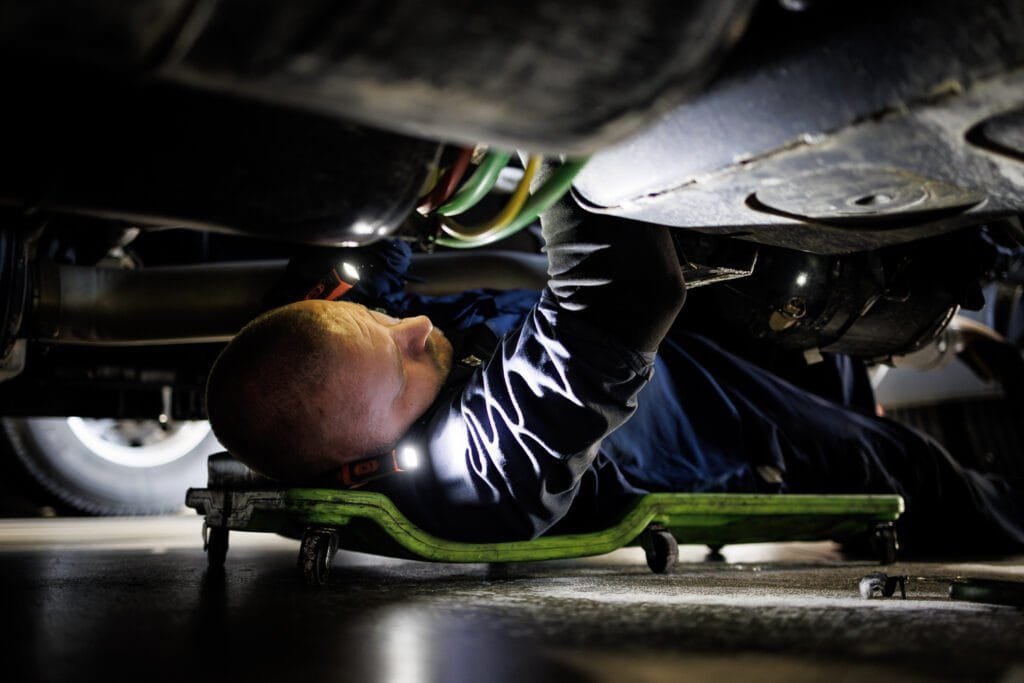
It’s easy to mix up a truck inspection with a diagnostic—but they’re not the same thing. Both are important parts of keeping your truck safe and road-ready, but they serve very different purposes. Let’s clear up the confusion.
A truck inspection is a physical check of your vehicle—usually required by law—to ensure everything meets safety and operational standards. Think brakes, lights, tires, suspension, and other visible components. Inspections can be routine (like pre-trip or post-trip checks) or more formal, like an annual DOT inspection. The goal is to catch anything that could be a safety hazard or lead to a violation before you’re pulled over or fail a roadside check.
On the other hand, a diagnostic digs deeper. It looks at the internal systems of your truck—especially the engine, transmission, and electronic controls. Where an inspection might flag a worn brake pad or cracked light housing, a diagnostic tells you why your check engine light is on or why your truck is idling rough.
The two actually complement each other. A proper truck inspection might lead a mechanic to recommend a diagnostic if they suspect something under the surface. Likewise, if a driver reports performance issues, a diagnostic may confirm the problem and guide what gets addressed during a repair.
Any reliable truck mechanic in Chicago will know how to balance both: using inspections to keep your truck compliant and diagnostics to keep it running strong. Together, they form a full-picture approach to smart, proactive maintenance—and help you avoid surprises that can slow down your schedule or hurt your bottom line.
Also read: Finding a Trustworthy Truck Repair Shop Near Me: What You Need to Know
How to Know What Your Truck Really Needs

Let’s be honest—figuring out what your truck actually needs isn’t always easy. You might notice something feels off, but is it time for routine truck service, a deep-dive diagnostic, or full-on truck repair? Knowing how to read the signs (and act quickly) can save you time, money, and a serious headache.
Start with what you’re seeing—or hearing. Is your check engine light on? Is your truck making strange noises, vibrating, or shifting rough? That’s a red flag you’ll want to check out with a truck diagnostic. It’ll tell you what’s happening beneath the surface so you’re not just guessing (or spending on unnecessary work).
On the other hand, if your truck is running just fine but it’s due for a mileage-based checkup, that’s your cue to schedule truck service. Oil change, fluid top-off, brake inspection—these basics keep everything operating smoothly and help you avoid bigger issues later. Many truck owners underestimate the value of sticking to a consistent service schedule—but skipping it can lead straight to more costly repairs.
If your truck’s performance is clearly suffering—grinding brakes, smoke, odd smells, or flat-out failure—it’s time for truck repair. And if you’re not sure what category your issue falls into, that’s where a knowledgeable truck mechanic in Chicago can really help. They’ll assess the situation, explain your options, and get you on the right path without overcomplicating things.
The bottom line? Every sound, light, or lag in performance is your truck trying to tell you something. With the right mechanic and a smart approach, you can translate those signals into action—and keep your truck in top shape, mile after mile.
Know the Difference, Drive with Confidence
Understanding the difference between truck service, truck repair, and diagnostics isn’t just helpful—it’s essential for keeping your rig running smoothly and your business on track. Routine service keeps small issues from becoming big ones, diagnostics help pinpoint hidden problems fast, and timely repairs make sure you’re not stuck on the side of the road when you should be making deliveries.
And let’s not forget the importance of a proper truck inspection—especially when safety, compliance, and reliability are all on the line. Each of these services plays a unique role, and knowing which one your truck needs (and when) gives you the power to stay ahead of costly downtime.
The good news? You don’t have to figure it all out alone. A trusted truck mechanic in Chicago can guide you through it—whether you’re due for a tune-up, dealing with warning lights, or just want peace of mind before your next haul.
Ready to take better care of your truck? Schedule a service, inspection, or diagnostic with a professional today—and drive with confidence, knowing your vehicle is in expert hands.

